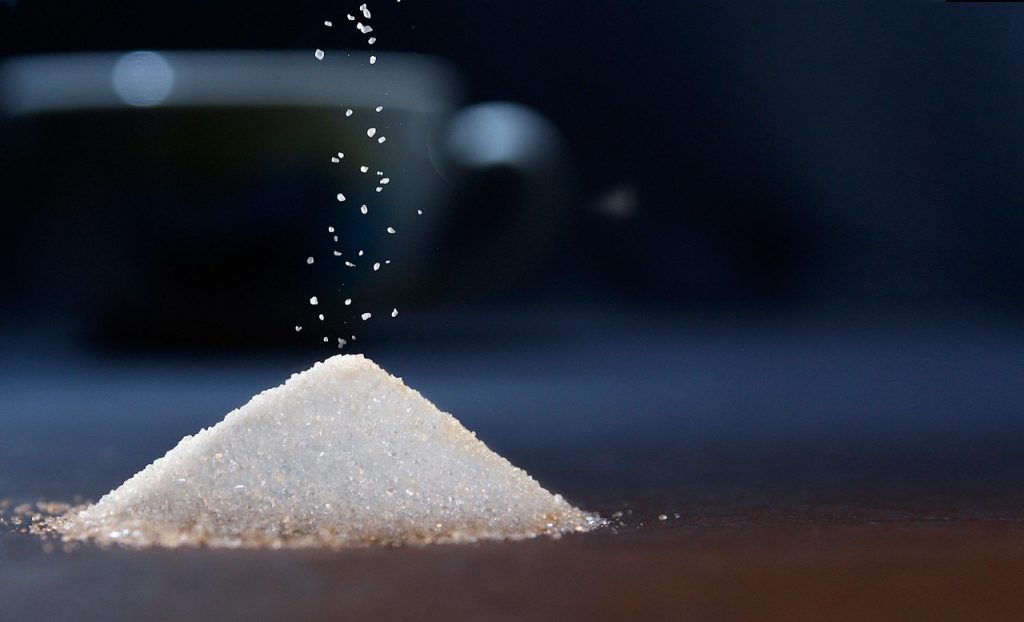Learning how to stop a sugar addiction is the single most powerful step one can take to not only alleviate anxiety, manage stress, and balance Gaba and glutamate, but to improve mental, physical, and spiritual health all around.
The consumption of sugar is a primary underlying contributor to chronic stress, anxiety disorders, imbalances in Gaba and glutamate and other neurotransmitters, and the many conditions that accompany these issues like insomnia, microbial overgrowth, adrenal fatigue, addiction, compulsive overeating, and dysautonomia.
It also weakens immune function, degrades the gut, harms the liver, causes inflammation, and contributes to insulin resistance, type 2 diabetes, heart disease, dementia, cancer, and much more.
Removing sugar from my diet was a pivotal point in my life that enabled me to successfully overcome crippling anxiety attacks, depression, and addiction to many substances, and as of the year 2023, I’ve maintained that recovery for nearly 35 years.
However, giving up sugar is a difficult battle for most people, because you are dealing with a powerful addiction. This addiction is driven by disrupted neurotransmitters in the brain and impairment of the endocrine system.
With the right changes in diet, mindset, and lifestyle, you can reset your biochemistry, eliminate cravings and enjoy a sugar-free life.
Here are 6 simple steps to get you started:
- Reframe the way you think of sugar. It is not a food; it is an addictive, harmful, and mind-altering drug just like heroin, cocaine, and nicotine. You must begin to label and refer to it in this manner to change how you feel about it.
- Remove sugar from the diet and keep it out. Just like hard drugs and alcohol, sugar must be put down and not picked up again. You can’t eat just one candy bar or piece of cake. Just like an alcoholic or drug addict, there must be complete abstinence.
- Keep sugar out of the house. Just like an alcoholic or drug addict does not bring alcohol, heroin, or cocaine into the house, the same is true for the sugar addict.
- Avoid caffeine, nicotine, alcohol, and other mind-altering drugs (both prescription and recreational, including marijuana).
Each of these substances disrupts neurotransmitters in the brain in the same way as sugar and keeps the addiction cycle active. Alcohol is the most refined sugar you can consume. To overcome one addiction, you must overcome all addictions, otherwise, you are only switching substances, and eventually, this leads back to the substance of choice. - Eat a low-carb Paleo diet. Refined carbs, and even starchy foods like potatoes, whole grains, and legumes, trigger sugar cravings too and keep the addiction cycle active because they break down into sugar in the body. A low-carb Paleo diet, (rich in animal protein, moderate in fat, low in carb) is the diet you are genetically designed to eat, and therefore, it restores balance to neurotransmitters in the brain and the endocrine system, which eliminates sugar cravings and promotes good mental and physical health overall.
- Address all the other contributing factors that can be fuel for sugar cravings. Many other underlying factors can contribute to or perpetuate the cycle of sugar addiction, which may include but is not limited to insulin resistance, adrenal fatigue, leptin resistance, autonomic nervous system dysfunction, hormone imbalance, environmental toxins, abuse and trauma, hypoglycemia, hypothyroidism, food sensitivities, lack of sleep, excessive exercise, chronic stress, SIBO, neurotransmitter imbalances, and candida overgrowth. Each of these should be explored to see if they apply to your health and addressed accordingly.
If you need help in overcoming your addiction to sugar, you can find everything you need to know in my comprehensive book, Break Your Sugar Addiction Today, to help you end the battle and experience true freedom.
If you already have the toolkit or just need support then you may want to consider my accountability coaching to achieve your goals.
Learning how to stop sugar addiction is simple, but putting it into action is not easy. It takes time to change the mindset, adopt healthier eating habits, develop new values, and heal the brain and endocrine system. But, with a commitment to permanent changes in diet and lifestyle and determination to reach your goal, it can be achieved.

